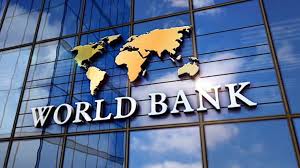Nigerians may no longer be able to carry out international transactions using Master cards, Visa cards and others as Egmont Group is considering expelling the Nigeria Financial Intelligence Unit (NFIU).
It was gathered that if Nigeria is eventually expelled, one of the major consequences will be the blacklisting of Nigeria in international finance.
This could eventually affect the issuance of Mastercard and Visa credit and debit cards by Nigerian banks.
It could also affect the international rating of Nigerian financial institutions, restricting their access to some big-ticket international transactions.
Nigeria will also reportedly no longer be able to benefit from financial intelligence shared by the other member countries, including the US and the UK.
The expulsion will also reportedly affect the country’s ability to recover stolen funds abroad.
The expulsion, according to The Cable, is part of the agenda of Egmont’ working group and heads of FIU meeting between March 2 and March 7, 2017, in Buenos Aires, Argentina.
The group, comprising 153 countries, mandates its members to establish a financial intelligence unit that serves as a national centre for the receipt and analysis of (1) suspicious transaction reports; and (2) other information relevant to money laundering, associated predicate offences and financing of terrorism, and for the dissemination of the results of that analysis. All advanced countries are members of the group, which is an initiative of the American government.
The group reportedly suspended Nigeria, in July 2017, citing interference of the Economic and Financial Crimes Commission (EFCC) in the workings of the NFIU.
The body had asked Nigeria to amend the law establishing the NFIU to make it independent from the EFCC.
Egmont group also accused the NFIU of failing to protect “confidential information, specifically related to the status of suspicious transaction report (STR) details and information derived from international exchanges”.
The group said: “The heads of FIU made a decision, by consensus, to suspend the membership status of the NFIU, Nigeria, following repeated failures on the part of the FIU to address concerns regarding the protection of confidential information, specifically related to the status of suspicious transaction report (STR) details and information derived from international exchanges, as well as concerns on the legal basis and clarity of the NFIU’s independence from the Economic and Financial Crimes Commission (EFCC). The measure will remain in force until immediate corrective actions are implemented.”
The senate had passed the bill granting the NFIU autonomy after Nigeria was suspended from the group.
In December, 2017, the acting chairman of the EFCC, Ibrahim Magu, said NFIU had been separated from the EFCC.
Magu stated that from January 1, 2018, NFIU, would begin to operate as an independent organisation.
He said: “We have allowed NFIU to go. They are operationally autonomy independent of EFCC.”
It is, however, not clear if the independence of the NFIU has been implemented as stated by Magu.
It was previously reported by an online news portal that the EFCC insisted that the NFIU was independent of its control.
In an interactive session with newsmen in Abuja, the acting chairman of the commission said that ongoing efforts to create a “stand-alone’’ NFIU was needless.
Magu said: “I am not opposed to the autonomy of the NFIU; in fact the NFIU has always been operationally autonomous.
“I understand the workings of Financial Intelligence Units around the world and they are domiciled in law enforcement agencies based on their credibility.
“This is another way of corruption fighting back; people are fighting and pretending to be in support of what is ongoing, but they are not giving a face to the fight against corruption.’’









